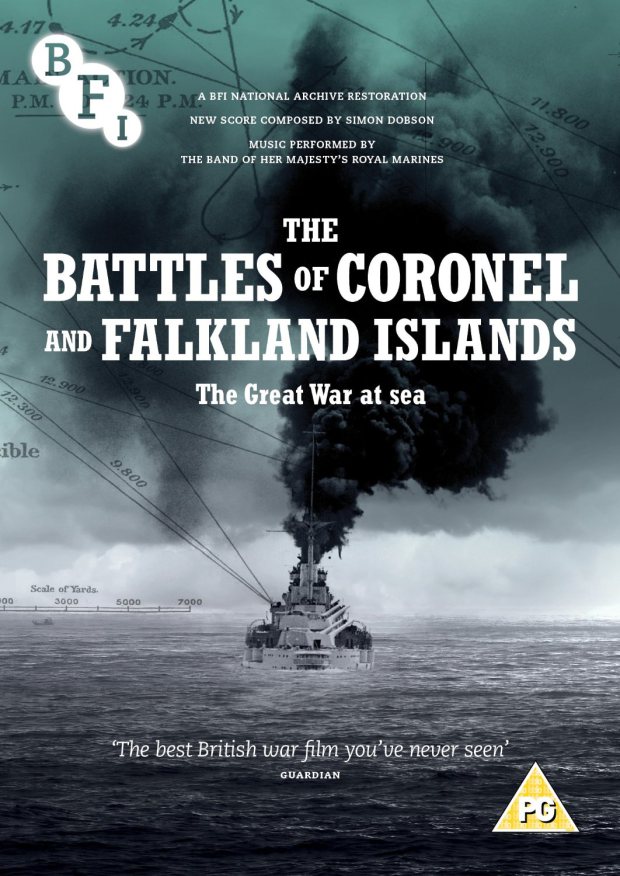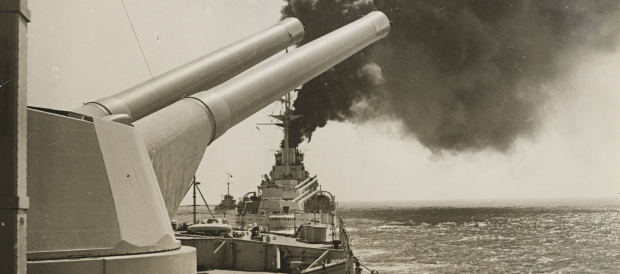
On Monday 19th January 2015 the BFI will release Walter Summers’ The Battle of Coronel and Falkland Islands (1927) on DVD and Blu-Ray.
You are probably going to hear much more about British filmmaker Walter Summers (1896 - 1973) over the next few weeks as we are also screening Summers’ superb A Couple of Down and Outs (1923) at the Bristol Museum on Thursday 12th February. This unique screening will also include live music by the great Stephen Horne, you don’t want to miss out. But more about that later on in the month.
Back to The Battle of Coronel and Falkland Islands a film Summers made four years after A Couple of Down and Outs and once again looks at the subject of World War One. Below you will find a review of this brand new BFI DVD release by James Harrison, as well as information about how to win yourself a copy of the film.
Walter Summers’ wonderful film The Battle of Coronel and Falkland Islands (1927) should not in anyway be classed as a documentary (when the title was announced for the London Film Festival 2014 certain media groups put it into that genre). To be honest, labelling the film as a ‘dramatic reconstruction’ as British Instructional Films did in 1927 (as well as the BFI understandably) could possibly turn a modern audience off as well. This shouldn’t be the case, from the outset The Battle of Coronel and Falkland Islands is very much a classic British war film through and through and a film which shouldn’t be left on the shelf.
In fact when you get stuck into the 102 minutes of full on World War One sea battle action you begin to realise, very early in the film in fact, that you are watching an early incarnation of later classic British war films such as In Which We Serve (1942), The Cruel Sea (1952), Sink the Bismark! (1960) and in particular Powell and Pressburger’s much underrated The Battle of the River Plate (1956).
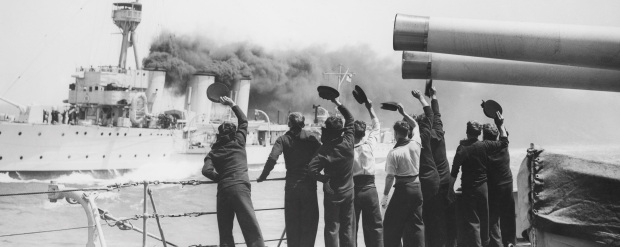
Like Sink the Bismark! and The Battle of the River Plate, Coronel is set around actual naval battles (although set in WW1) and tells the story of the key players and ships involved in the two engagements that took place in the South Atlantic in 1914. On top of that (like Sink the Bismark!) the film also shows the action behind closed doors at the Admiralty with the back room planners as well as the importance of the domestic war machine in the factories, dockyards and on the streets of Britain during the war. Even The Falkland Islanders themselves are represented in the film by the local volunteer forces which are given the task of defending Port Stanley from the enemy German squadron under the command of Vice Admiral Maximilian Reichsgraf von Spee (played by Hans von Slock). And like Powell and Pressburger’s The Battle of the River Plate, which included the pocket battleship that was named after von Spee (Admiral Graf Spee was launched 1934 and scuttled in 1939) the Germans are portrayed in a good light, unlike many earlier British films.
Another curious aspect of The Battle of Coronel and Falkland Islands is the feeling of how big a canvas Summers has to cover to tell the story and how he is able to cope with it all. Summers’ is using real British battleships in the film after all.
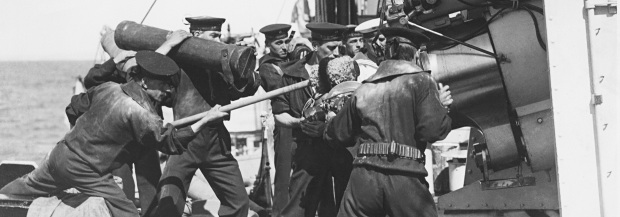
But while we see the huge aspect of such a story he is also able to take time to turn the cameras onto the smaller individuals involved within the story, we meet the sailors keeping the battleships shipshape, we meet the newspaper boy selling the story on the streets of London, we even meet the Chaplain on one of the battleships… OK maybe we don’t, but we do meet the Chaplain’s mini piano.
On top off all of this, and as many other commentators have mentioned before, we also get the essence of the relationship between man and machine. None of the later war titles mentioned above explored the theme as well or in the same depth as the Coronel.
So what we get with The Battle of Coronel and Falkland Islands is the blue print for all later naval based British War films and to be honest, in my opinion, Coronel is far superior. Not too bad for a film which many people, including quite a few silent film enthusiasts, hadn’t heard of before the end of 2014!
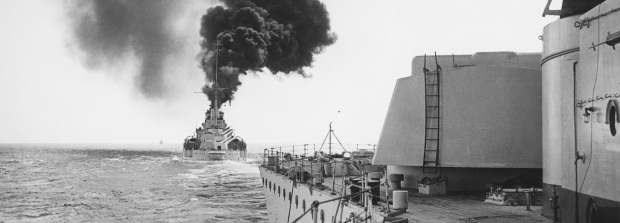
The score by Simon Dobson is superb and engages well with the film. This is Dobson’s first ever film score and it looks like there is most certainly a future for this Cornish born composer. (As we were posting this Silent London announced that it was the best score for 2014; and rightly so).
The DVD extras range from the usual social related short silent films of the time such as a number of Topical Budget newsreel clips, and a brilliant animation short called Sea Dreams (1914) which is almost worth the price of the DVD release on its own. The usual BFI booklet contains well researched and engaging essays covering every aspect of the subjects covered in the film, whether the subject is more naval or film related history.
Walter Summers’ The Battle of Coronel and Falkland Islands is not only one of the key silent films of the British silent era, it is a key film in the history of British film!
Highly Recommended!
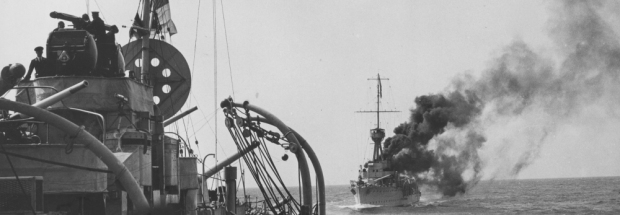
————————————————————————————————————
So, to win a copy of The Battle of Coronel and Falkland Islands (1927) all you need to do is answer the following question:
Walter Summers was born in which English town?
Simply email the answer to [email protected] with ‘Coronel and Falkland Islands’ in the subject header by 11pm on Sunday 18th January 2015. The lucky winner will then be announced on the afternoon of Monday 19th January and we will email the winner soon afterwards. GOOD LUCK!
Our thanks as always to the BFI for letting us run this competition and for releasing such a stunning film!
